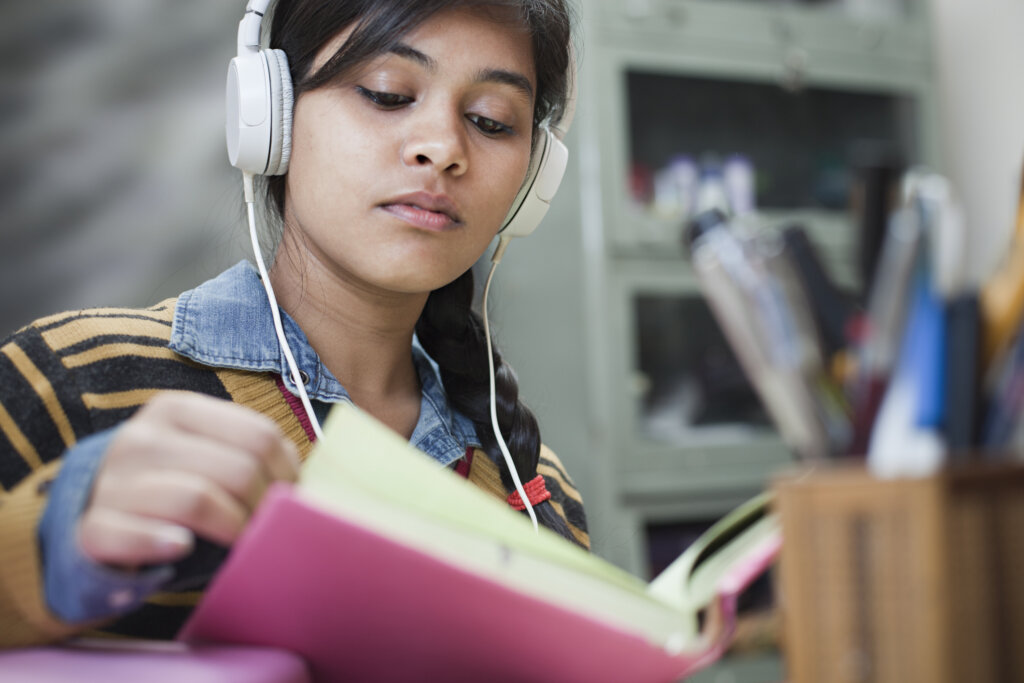How do you balance screen time and online learning? Online learning is now a key part of everyday life for all students. Has monitoring screen time gone out the window?
Ten years ago, a large study showed that students aged 8-18 used technology upwards of seven hours a day. This statistic gave rise to the term “screen time.”
Experts researched the effects on children’s social development and noted the effects that online time was having in a number of areas including social anxiety, sleep habits, and attention span.
Thanks to the coronavirus, screens have become part of the way that children learn both in and out of school. This means that it’s more important than ever to pay attention to not just how long children are on their screens, but also to what they are using technology for.
All Screen Time is Not Created Equal
There is a difference between using technology for learning and using technology as a form of recreation. Children need a variety of online and offline experiences, including opportunities to let their minds wander. Screen time that promotes socialization, such as FaceTime with friends or a video conference with the teacher is beneficial. Activities in which children feel engaged such as playing video games interactively are better than passive and solitary screen time, such as watching YouTube videos.
Now that screens are a part of how children learn, the question has shifted from “how long are children online?” to “what are they using their online time for, and how is it affecting their brains?” source
Too Much Screen Time has Been Linked to the Following Issues:
- Health factors—staring at screens for long periods of time can cause headaches and body aches, especially for children who are not used to it. It can also lead to weight gain and other problems related to a more sedentary lifestyle. source
- Attention and Distraction Issues—social media is linked to providing dopamine, which makes using it addictive. It’s also instantaneous, which makes the brain crave immediate feedback. Unfortunately, too much screen time can shorten attention spans making it harder to pay attention when offline. source
- Decrease in Creativity—too much time consuming content does not allow space for boredom. Boredom and the freedom to let our minds wander is important because that’s the time in which creativity and imagination develop. source
- Sleep impacts and memory—the blue light emitted from screens, especially in the hours before bed, can interfere with natural circadian rhythms leading to poor sleep. Lack of sleep impacts how well children feel the next as well as their brain’s ability to process and store new information when learning in class. source
- Social factors—social development issues such as depression and anxiety are on the rise with the younger generation thanks to an increase in social media usage. source
Three Tips to Manage Screen Time in the Age of Online Learning
While we may not be able to control the fact that screen time is now a necessary part of school, we can control how much technology is used for socialization and recreation.
It’s important to establish balance in life; too much time in front of screens is not healthy. So, while school requires that students use screens, it’s important to discuss with all family members how to best achieve a balance between online and offline time every day.
- Know your Consumption Habits. Pay attention to how screens are being used during non-learning times. Is it for socialization or recreation? Are kids being social and creative? Or is it just to consume media from YouTube?
- Make an Offline Time Agreement Together. Whether it’s to walk the dog every night, putting phones away during dinner, or while playing board games together a few times a week, agree as a family to have some tech-free time every single day.
- Create a Study Studio. Because learning is mobile, it can be difficult to compartmentalize learning times and non-learning times. Creating a study studio at home can help screen time used for learning from spilling over into other areas of life.




